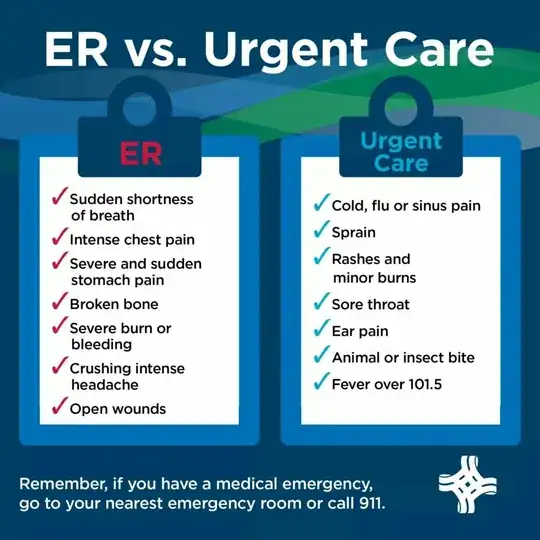Urgent care is for things that your normal physician could treat, but you are outside their hours or unable to get an appointment within a reasonable time for the condition.
Emergency rooms are for medical emergencies.
Examples of things that can be treated in Urgent Care (via the University of Michigan):
Cold/flu, sprained ankle, broken bones in wrist/hand/ankle/foot without severe displacement or skin punctured, sore throat, nausea, minor cuts, eye/ear infection, minor burns
Things for which you should go to the ER (or better, call 911/emergency services):
Extremely high fever, severe trauma, broken bones severely displaced or puncturing skin, difficulty breathing, heart attack/stroke, uncontrolled bleeding, poisoning, major burns
In summary, if you could die, go to the ER. If you have a non-life threatening acute medical issue, urgent care. If in question or unsure, go to the ER.
